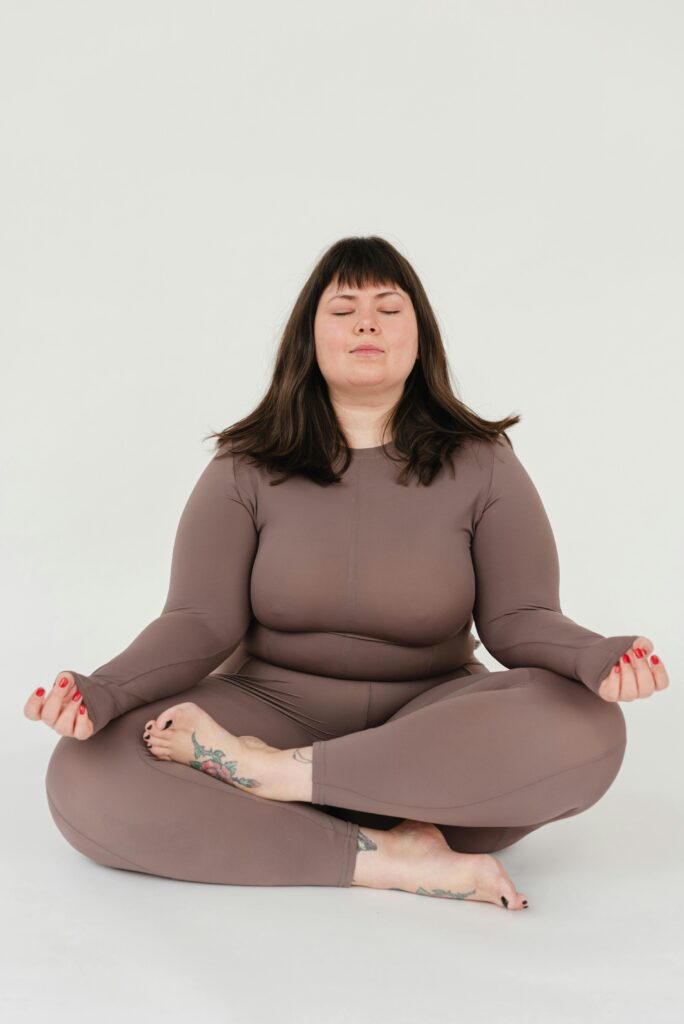Creating Positive Habits To Replace Addiction Triggers
When it comes to overcoming addiction, one of the most effective strategies is cultivating positive habits that can replace the negative behaviours associated with addiction triggers. The idea is simple: by building new, healthy routines, you retrain your brain to react differently to the situations or emotions that once led to cravings.
But how exactly can positive habits replace addiction triggers? Here’s a step-by-step approach to help you understand the process and apply it in your daily life:
1. Identify Your Triggers: The first step in replacing addiction triggers with positive habits is to identify what your triggers are. Think about the situations, people, places, or emotions that make you want to return to old habits. Write them down and reflect on how each trigger impacts you. For example, if boredom is a trigger, this might be an opportunity to fill that idle time with a constructive activity instead.
2. Choose Positive Habits That Fit Your Life: Once you’ve identified your triggers, it’s time to find healthy alternatives that can replace those old habits. The key is to choose activities that are both enjoyable and beneficial to your overall well-being. These habits should be simple, realistic, and easy to fit into your daily routine. For instance, if stress triggers your cravings, taking up yoga, walking, or mindfulness exercises can be an effective way to reduce stress and avoid relapse. If you tend to use substances as a way to relax after work, a good replacement habit could be engaging in a creative hobby like painting, reading, or even gardening. The goal is to find something that makes you feel good and provides a sense of accomplishment without relying on substances.
3. Start Small and Build Gradually: It’s important to remember that change doesn’t happen overnight. When creating positive habits, start small and gradually build them up. For example, if exercise is a new habit you want to form, start with short, manageable sessions — maybe 10 minutes of walking each day — and gradually increase as the habit becomes more ingrained in your routine. The same applies to other habits like meditation or journaling. Consistency is key, so it’s important to stick with it, even if you don’t see immediate results.
4. Replace, Don’t Avoid: Rather than avoiding triggers altogether, aim to replace them with new habits. If going to certain social settings triggers cravings, find a way to attend while practising your new habits. You might choose to bring a non-alcoholic drink to a party or leave early to avoid temptation. This way, you still enjoy social connections while staying committed to your recovery.
5. Reward Yourself: Positive reinforcement helps solidify new habits. Every time you successfully replace an addiction trigger with a positive habit, reward yourself. This can be as simple as taking a moment to reflect on your progress or treating yourself to something you enjoy. The more your brain associates these positive habits with a sense of achievement, the easier it will be to maintain them over time.
Creating positive habits not only helps you manage addiction triggers but also leads to a more fulfilling and balanced life. By identifying your triggers, choosing enjoyable replacements, starting small, and rewarding yourself, you can develop routines that keep you on the path to recovery. Over time, these positive habits will become second nature, helping you maintain long-term sobriety and well-being.

How Positive Habits Improve Mental Health And Well-Being
Incorporating positive habits into your daily routine not only helps in overcoming addiction triggers but also plays a crucial role in improving your mental health and overall well-being. When you develop healthy habits, your mind and body begin to experience significant positive changes that support a stronger, more stable recovery.
- Reducing stress and anxiety – One of the biggest benefits of creating positive habits is the reduction of stress and anxiety. Habits like exercise, meditation, and journaling help manage the emotional triggers that often lead to cravings. Physical activities such as walking, cycling, or yoga naturally reduce the body’s stress hormones like cortisol, while boosting endorphins — the body’s natural “feel-good” chemicals. Similarly, mindfulness practices, such as meditation, help calm the mind and offer a healthier way to cope with stress.
- Building confidence and self-worth – Positive habits also help build self-confidence and improve your sense of self-worth. Every time you successfully follow through with a positive habit, it reinforces the idea that you are capable of change. This, in turn, strengthens your belief in your ability to maintain sobriety and handle life’s challenges. For many in recovery, this newfound confidence becomes a key element of long-term success.
- Fostering routine and stability – Routine plays a vital role in recovery. Positive habits create structure in your day, which can help combat feelings of boredom, one of the most common addiction triggers. By sticking to a routine, you create stability, which gives your mind and body a sense of security and predictability. This makes it easier to stay focused on your recovery goals.
Creating positive habits not only replaces addiction triggers but also contributes to better mental health, increased confidence, and a more stable, fulfilling lifestyle.
How To Stay Consistent When Cultivating Positive Habits
Staying consistent is key to making sure that the positive habits you create become a permanent part of your life. Consistency helps rewire your brain to respond to triggers in new, healthier ways, but it can be challenging to maintain. Here’s how to stay consistent when building new habits:
- Start small and simple – Trying to overhaul your life overnight often leads to burnout. Instead, begin with small, manageable changes that fit easily into your daily routine. For instance, if you’re building a habit of exercise, start with 10 minutes a day. Gradual changes are easier to stick with and eventually grow into long-lasting habits.
- Set reminders – Forgetting to stick to your new habits is a common issue, especially when you’re just starting. Use phone alarms, sticky notes, or apps to remind yourself to follow through. Visual cues and reminders make it easier to remember the new habit and reduce the chance of slipping back into old routines.
- Track your progress – Keeping a journal or using a habit-tracking app can motivate you to stay consistent. By seeing how far you’ve come, you’ll be less likely to give up. It also gives you a sense of accomplishment as you tick off each day you’ve completed your new habit.
- Find accountability – Telling a friend or family member about the new habits you’re trying to build can help keep you on track. Having someone to check in with or who can encourage you along the way increases your motivation to stay consistent. This shared responsibility often makes it harder to abandon the habit.
- Celebrate small wins – Rewarding yourself for sticking to your new habits helps reinforce them. Whether it’s treating yourself to something small or taking a moment to reflect on your progress, celebrating small wins encourages consistency and keeps you motivated to continue.
By starting small, tracking progress, and celebrating each step forward, you’ll ensure that your new habits become a lasting part of your routine.
A Brighter Future Through Positive Habits
Creating positive habits is not just about overcoming addiction triggers; it’s about laying the foundation for a brighter, healthier future. As you develop new habits, you begin to rewire your brain and body to handle stress, boredom, or anxiety in healthier ways. These habits become the building blocks of a life free from addiction and full of positive growth. The process of creating these habits brings about a sense of accomplishment and control. Every time you choose to replace a trigger with a positive action, you’re reinforcing your ability to stay sober and thrive. The more consistent you are, the more these habits will become second nature, gradually reducing the intensity of cravings and the power that addiction once had over you.
In addition to helping you maintain sobriety, positive habits can open doors to personal growth and fulfilment. Whether it’s exploring a new hobby, setting career goals, or improving relationships, these new routines create space for growth in areas that may have been neglected during active addiction. Most importantly, building positive habits fosters a sense of purpose and direction. As you focus on the small, daily changes that lead to long-term improvement, you begin to shape the life you truly want. Each habit contributes to the person you’re becoming, one step at a time, allowing you to embrace a future filled with stability, happiness, and success. Creating positive habits is one of the most effective ways to overcome addiction triggers and maintain long-term sobriety. By developing healthy routines and replacing old behaviours with constructive activities, you equip yourself with the tools needed to handle life’s challenges without relying on substances.
At The Freedom Solution, we understand the importance of positive habits in the recovery journey. Our personalised addiction recovery services focus on helping you build these habits while addressing the underlying causes of addiction. We believe that with the right guidance and support, anyone can break free from the cycle of addiction and lead a fulfilling, substance-free life. As you continue to develop and reinforce these positive habits, you’ll not only reduce the power of addiction triggers but also improve your mental and physical well-being. Every new habit brings you closer to living the life you deserve — one that’s healthy, happy, and centred on growth.
If you’re ready to take the next step and start creating positive habits that will support your recovery, we’re here to help. At The Freedom Solution, we provide the resources, support, and expertise needed to guide you through this life-changing process. Together, we can help you build a future where addiction no longer has control. Don’t wait — reach out to The Freedom Solution today to learn more about our personalised addiction recovery services and how we can help you create positive habits for lasting change. Visit our website or contact us to begin your journey towards a healthier, addiction-free life.











Leave A Comment